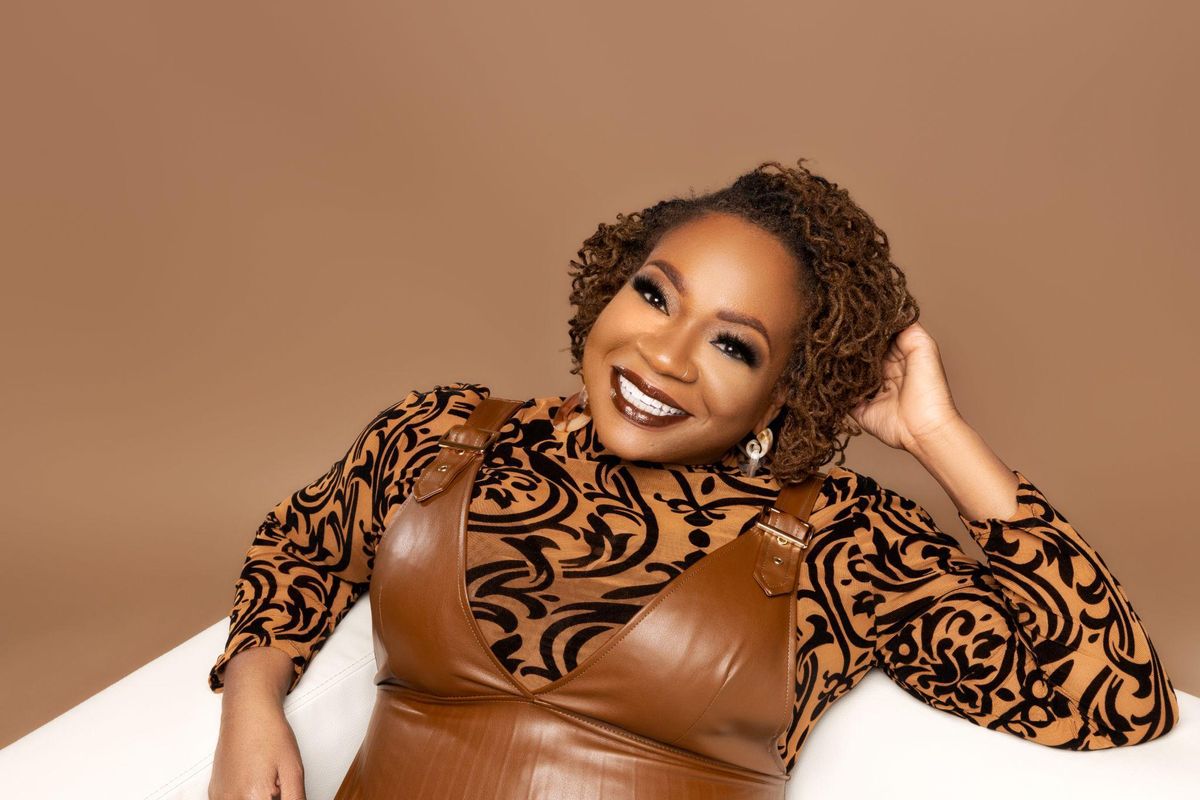As told to Megan Margulies
I drove up my driveway and put my car in park. I was finally alone, so I screamed. I had just been diagnosed with HIV. I was 36 years old, in my prime, moving and shaking with my marketing career. My next thought was, “Who’s going to marry someone who’s HIV positive?” And then I went to the next extreme: “I can’t die like this.”
My diagnosis was pretty traumatic. After delivering this life-changing news, a nurse handed me an envelope containing phone numbers for the health department and testing facilities, and then wished me a “great weekend.” There was no referral for one-on-one care, and I didn’t have the bandwidth or the capacity to go and find my own doctor. I felt unseen, like I didn’t matter — and I was furious. Luckily my friend who works in social services helped me find a really great care team.
I told my closest tight-knit circle of girlfriends and my mom about my diagnosis, but didn’t tell anyone else for a year. That time gave me a unique perspective on how people talk about folks who have been diagnosed. I saw how HIV was talked about on social media, and I couldn’t believe how cruel people were about others with HIV. It was a real eye-opener about how stereotypes and stigmas affect people with an HIV diagnosis, so I became very aware of the judgment I would face and became extremely cautious with how I moved with my diagnosis.
It can look a “certain way,” to be seen in front of the health department agency for HIV-positive people, so I was uneasy going to an appointment there. When I arrived, I was hyperaware of these stigmas. I’m a sorority girl and have sorority tags on my car, so I parked close to the employee parking so people would think I was there for philanthropic purposes. I was so concerned with what other people would think that I parked so it looked as though I was there to give service, not receive service. On top of being concerned about my health, I also felt burdened by worrying about my image.
A few years after my diagnosis, I told others in my life and went public with my HIV status and was featured in an ad campaign for a new HIV medication. I went to my usual nail technician to get microblading done on my eyebrows and the woman told me they couldn’t provide the service. She listed excuses about sanitation and healing and how it wasn’t good for “people like me.” I never went back.
Despite the stigma and the hurdles I kept facing, my mantra and internal soundtrack kept playing: This cannot be my demise. I refuse to let this be my demise. I had done undergrad work in the HIV community, and I knew that untreated HIV leads to death. So, I told myself to push through and connect to the best care. As concerned as I was about my image, and the ignorant perspectives of other people, I knew my health was the most important thing.
Whenever self-doubt creeps in, I have to tell my inner critic, Thank you so much, I hear you, but you can't serve me right now. It’s a defense mechanism that may have served me in the past, but in this moment, it doesn’t. This mindset is something I have to constantly work on because being diagnosed is not a moment, it’s an experience — a continual experience in one’s life.
I’ve finally gotten to a place where I don’t feel constant anxiety anymore. Most of the apprehension that remains for me is related to dating. The emotional toll of disclosing my diagnosis to a potential partner never gets easy. I’m always wondering and waiting to see how they’re going to respond — are they going to be that person on social media having a visceral reaction? Are they the man who’s going to have their family, and their stereotypes, dictate how they date? All of these things, on top of the challenges that go with regular dating, aren’t easy.
I see a therapist to help me get through all these tough situations. I like to say Jesus and my therapist saved my life. I believe in spirituality, but I think you also need a therapist to work in tandem. My traumatic diagnosis — feeling as though I wasn’t seen as a human being by the medical team who diagnosed me — and my experience navigating the stereotypes and stigmas of HIV allowed me to find the holes in HIV care, especially for people who show up and look like me. Now, I’m a private life coach for Black women living with HIV.
HIV isn’t a diagnosis that many women feel they can be open and honest about. It’s heavy enough showing up in this world as a woman, and so much more as a Black woman. Stigma is real, and dealing with harmful attitudes does more damage to the mind, emotions and health of HIV-positive people. At the core, it’s a chronic illness, and it doesn’t make us an outcast of society. I had to work hard to get to a place of strength and confidence — and now my mission is to help others thrive as well, despite their HIV diagnosis.
This resource was created with support from BD, Janssen & Merck.
From Your Site Articles
Related Articles Around the Web







